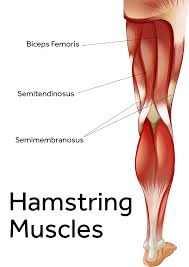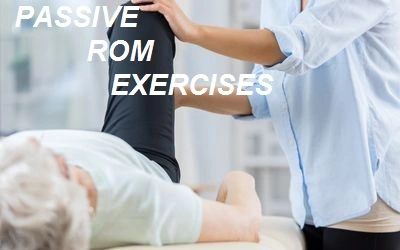How to Increase Stamina
Stamina is defined by the Oxford Dictionary as “the physical or mental strength that enables you to do something difficult for long periods of time.” In practice, this means that good stamina allows you to:
- Run faster for longer distances
- Lift heavier weights for more reps
- Go on longer and more strenuous hikes
- Push through perceived pain, discomfort, and fatigue
- Perform daily activities with high energy levels
The better your stamina, the more efficient you will be at almost everything, mentally and physically.
Stamina is a fundamental factor in improving other fitness goals. Improving your endurance will allow you to push longer and harder during endurance exercises, allow you to lift weights powerfully during weight training, and help you move faster without fatigue.
Endurance
People often use the words “stamina” and “endurance” interchangeably, and although the two terms are similar, they are not the same. Endurance In fitness, endurance is defined as the length of time a muscle group or body system can perform a specific action. Cardiovascular and muscular are two types of endurance related to fitness.
Cardiovascular endurance refers to the ability of your heart, lungs, and blood vessels to support rhythmic exercise such as swimming, cycling, and running. Muscular endurance refers to the ability of your muscles to sustain repetitive movements under a given load, such as weightlifting or hiking. Both types of endurance are essential and represent a component of stamina.
Strength
“Strength” has many different definitions, but when it comes to fitness, it basically defines how much weight you can lift. Powerful people can lift heavier weights and lighter weights for many repetitions. People with less strength can’t lift as much and might not be able to lift as many reps.
Strength training contributes to your endurance because it prepares your body to maintain movement under a heavy load. Increasing your endurance, in turn, helps improve your strength training by removing a lack of endurance as a limiting factor in how many reps you can do or how powerfully you can move the weight.
Speed
Speed refers to how fast or slows you move when you walk, run, swim, or do other cardiovascular exercises. Genetics can affect speed more than strength and endurance,1 although you can improve your speed with hard work, just as you can improve any other part of your fitness.
Endurance refers to your ability to endure a given effort. Stamina is less dependent on speed, but speed certainly still plays a role. If you improve your stamina, you’ll be able to move faster for longer.
5 Ways to Increase Stamina
1. Exercise
Exercising may be the last thing on your mind when you’re low on energy, but consistent exercise will help you build endurance.
Get plenty of physical exercises. Although it makes you tired in the short term, physical exercise increases your overall energy level and stamina for a long time. For adults, it is recommended that at least 140 minutes of moderate cardiovascular exercise per week (or 70 minutes of vigorous cardiovascular exercise) along with strength-building exercise at least twice a week.
- Cardiovascular exercise, such as aerobics, running, cycling, and dancing, works your heart and lungs and increases the efficiency with which your body delivers oxygen to your muscles. As a result, your body’s endurance and stamina will gradually increase (and its fatigue level will decrease) during cardiovascular exercise.
- Strength-building exercises like weight lifting and bodyweight exercises (push-ups, sit-ups, etc.) gradually build endurance (not to mention size, definition, and strength) in your muscles. Over time, you will notice a definite difference – you will be able to lift heavier loads for longer.
2. Yoga and meditation
Yoga position and meditation can greatly increase your stamina and ability to manage stress.
In a 2016 study, 27 medical students attended yoga and meditation classes for six weeks. They noted a significant improvement in their stress levels and sense of well-being. They also reported greater stamina and less fatigue.
3. Caffeine
In a 2017 study, nine swimmers took a 3 milligram (mg) dose of caffeine one hour before freestyle sprints. These swimmers improved their sprint time without increasing their heart rates. Caffeine can give you a boost on days when you feel too tired to exercise.
Try not to rely too much on caffeine, as you can build up a tolerance. You should also stay away from sources of caffeine that have a lot of sugar or artificial flavorings.
4. Music
Listening to music can increase your heart rate. 30 participants in this study had their heart rates reduced while exercising and listening to the music of their choice. They were able to exert less effort when exercising while listening to music than when exercising without music.
5. Ashwagandha
Ashwagandha is an herb that is used for vitality and health. It can also be used to enhance cognitive function and reduce stress. Ashwagandha helps to increase energy levels. In a 2015 study, 50 adult athletes took 300 mg Ashwagandha capsules for 12 weeks. They increased their cardiorespiratory endurance and overall quality of life more than the placebo group.
6. Adequate Rest
Get plenty of rest. While it’s important to stay active while exercising, if you’re aiming for high endurance, it’s just as important to stay well-rested. A good night’s rest should leave you refreshed, energized, and focused, ensuring that you can give your best physically. On the other hand, not getting enough rest can make you groggy and subpar. Poor sleep habits are also linked to a number of health problems that can negatively affect your stamina: weight gain, high blood pressure, and disease, to name a few.
While everyone has different sleep needs, the National Sleep Foundation recommends 7-9 hours of sleep per night for adults. Getting less than 6 hours of sleep per night is generally considered unhealthy and has been linked to the above health problems.
The Bottom Line
As you focus on increasing your energy levels, remember that it is natural to experience ebbs and flows of energy. Don’t expect to always work to your maximum potential. Remember to listen to your body and rest as needed. Avoid pushing yourself to the point of exhaustion.
If you feel like you are making changes to increase your stamina without getting any results, you may want to see a doctor. Your doctor can determine if you have any underlying health problems that are affecting your performance. Focus on your ideal plan for overall well-being.







